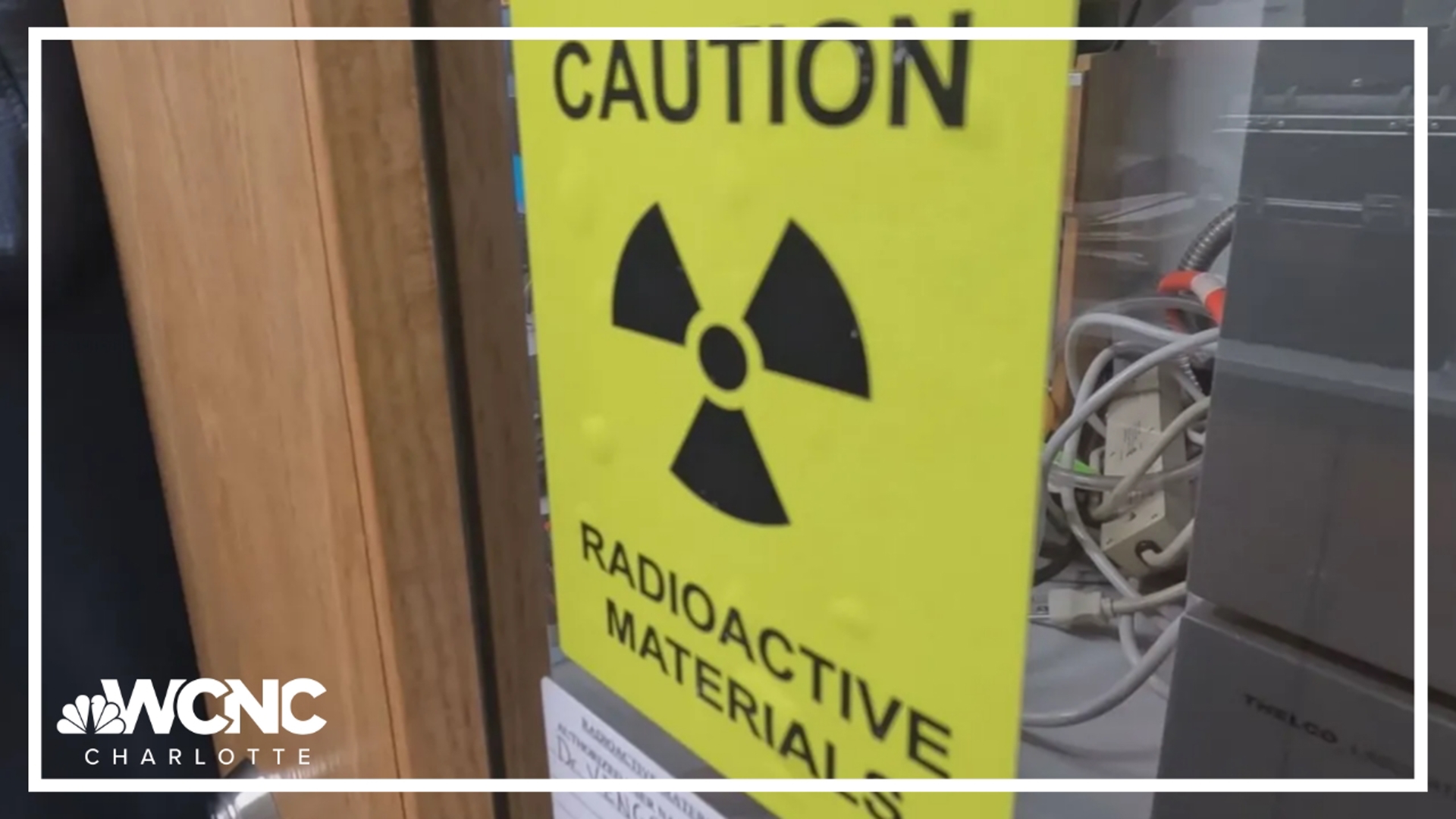'Extremely concerned' | Risky arsenic, radium levels found in coal ash near Mooresville day care
A leading coal ash expert analyzed WCNC Charlotte's coal ash samples collected near Tutor Time of Mooresville. The day care is awaiting test results of its own.
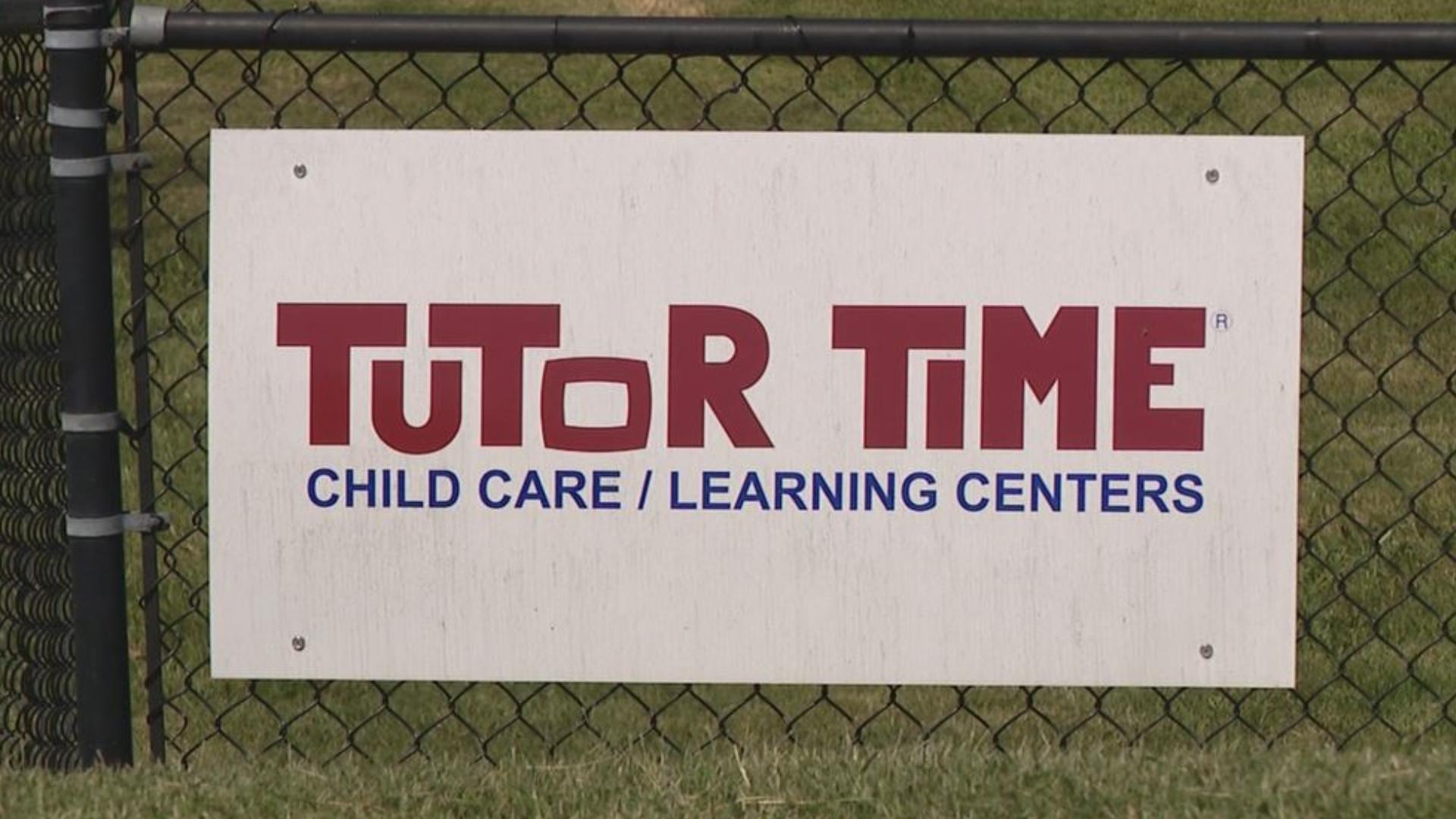
Test results of the soil near a Mooresville day care confirm what experts feared: what they call "unacceptable levels" of carcinogens and radioactivity in the coal ash placed there decades ago as fill dirt.
The findings follow a WCNC Charlotte investigation that revealed the coal-burning byproduct and its toxic ingredients are not just buried near Tutor Time of Mooresville. The coal ash is buried under the day care too, according to state environmental records.
That's the kind of thing that worries me."
"The idea of leave it as is, it's not an option," Duke University Distinguished Professor Dr. Avner Vengosh said. "This is definitely a problematic situation that needs to be mitigated as soon as possible. When you're continuously exposed to that, especially a vulnerable population like children, then we are talking about the risk. It's not a one-time exposure. That's the kind of thing that worries me."
Dr. Vengosh, chair of environmental quality at the Nicholas School of the Environment, agreed to analyze WCNC Charlotte's samples in an effort to help inform and protect the community. He called the mixture, which includes elevated levels of arsenic and radium, "a cocktail of toxic elements."
"What's unique about coal ash is we have a cocktail of multiple contaminants that those children could be exposed to, so the impact could be even more severe than just one contaminant," he said. "Each of them has been demonstrated to have a severe impact."
WCNC Charlotte collected the samples just beneath the surface of a public median near Tutor Time. Dr. Vengosh's analysis found levels of arsenic, on average, 69 times higher than North Carolina's own soil remediation goals and nearly 13 times higher than average levels in the natural soil. The three samples he analyzed had arsenic levels ranging from 45.1 to 50.1 mg/kg (ppm), while he noted the average background soil in North Carolina is 3.7 mg/kg (ppm).
The radium results showed elevated radioactivity, at its highest, exceeding the Environmental Protection Agency's cleanup standard. WCNC Charlotte's samples registered radium levels, on average, more than four times higher than the approximate natural levels in North Carolina soil. The two samples Dr. Vengosh analyzed for radium 226 and radium 228 registered levels of 5.9 and 6.9 pCi/g, while he noted the average background soil in the state is around 1.5 pCi/g.

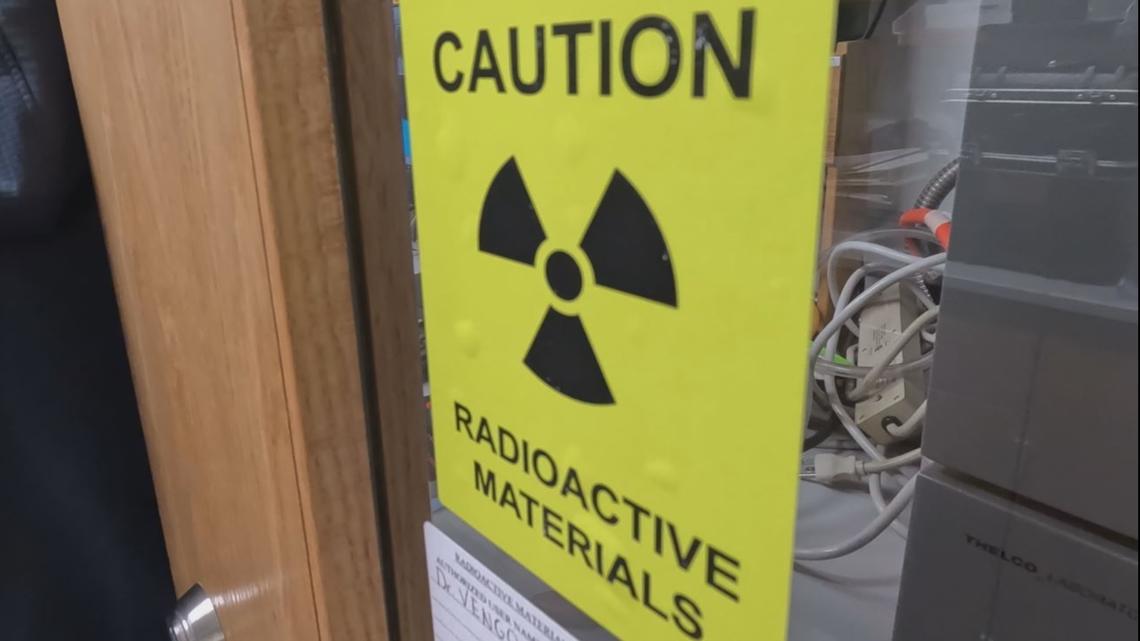
Dust, ingestion are biggest concerns
WCNC Charlotte's sample also included more than four dozen of coal ash's other ingredients, including selenium, chromium and lead, according to the lab analysis. Dr. Vengosh, like other experts WCNC Charlotte has interviewed, said he fears kids could inhale or ingest tiny particles from the coal ash.
Unlike regular soil, he said coal ash can become airborne. Pictures suggest some of the coal ash within the day care property has made its way to the surface over the years. Tutor Time recently covered what appeared to be an exposed section of coal ash along the playground fence after WCNC Charlotte pointed it out.
"If I would have known that my kids were going to a place where they were daily exposed to coal ash, I would be extremely concerned," Dr. Vengosh, a father of four, said. "It's not me as a professor at Duke saying it. It's a huge consensus among scientists about the potential toxicity of coal ash and it's impact on human health."

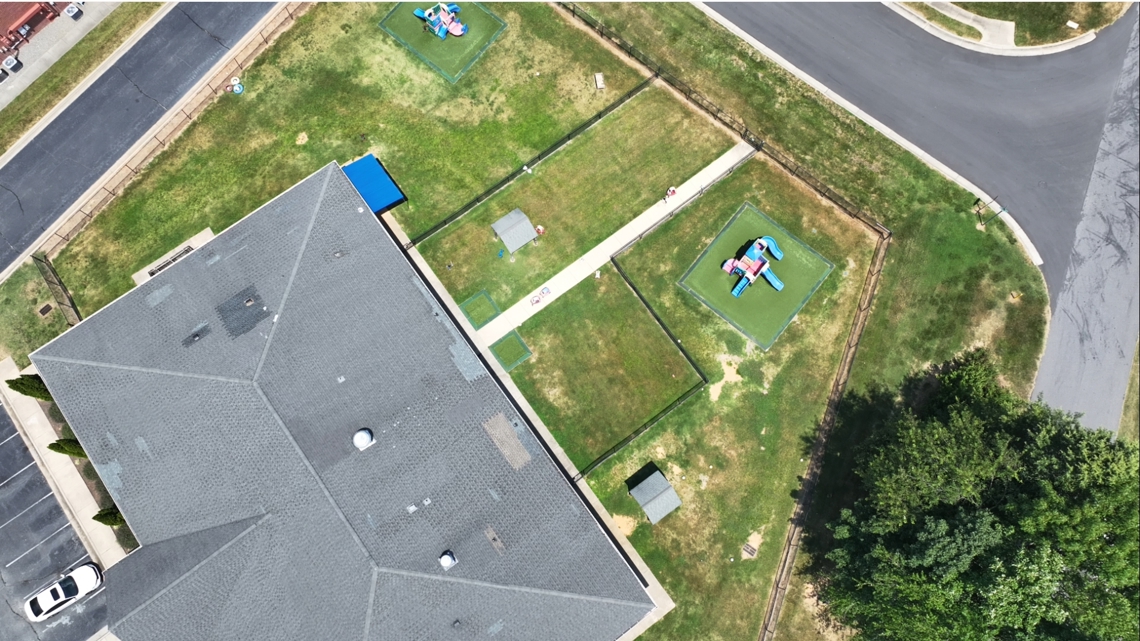
Long before Tutor Time's students were born, when some of their parents were still kids themselves, Duke Energy sold coal ash from a nearby steam station to builders who needed cheap fill dirt. Crews placed 100,000 tons of that coal ash at the site of what would eventually become Tutor Time within a business park on Brawley School Road, according to public records.
The utility has long-maintained coal ash is safe and has repeatedly said it is not toxic.
"It's not in the air, in the water, in the soil in any measurable way..." former Duke Energy spokesperson Paige Sheehan, now retired, said in a 2019 interview with WCNC Charlotte. "...We have to ask that there be room in the discussion for the facts."
That stance continued recently, even after WCNC Charlotte obtained Duke Energy's own coal ash test results from the originating plant that showed what an expert called "unsafe" arsenic levels.
"Duke has an interest here," Dr. Vengosh said. " It's not like an independent partner that gives an objective evaluation. With all due respect to Duke, they cannot have an objective observation on their product to say that it's not toxic."

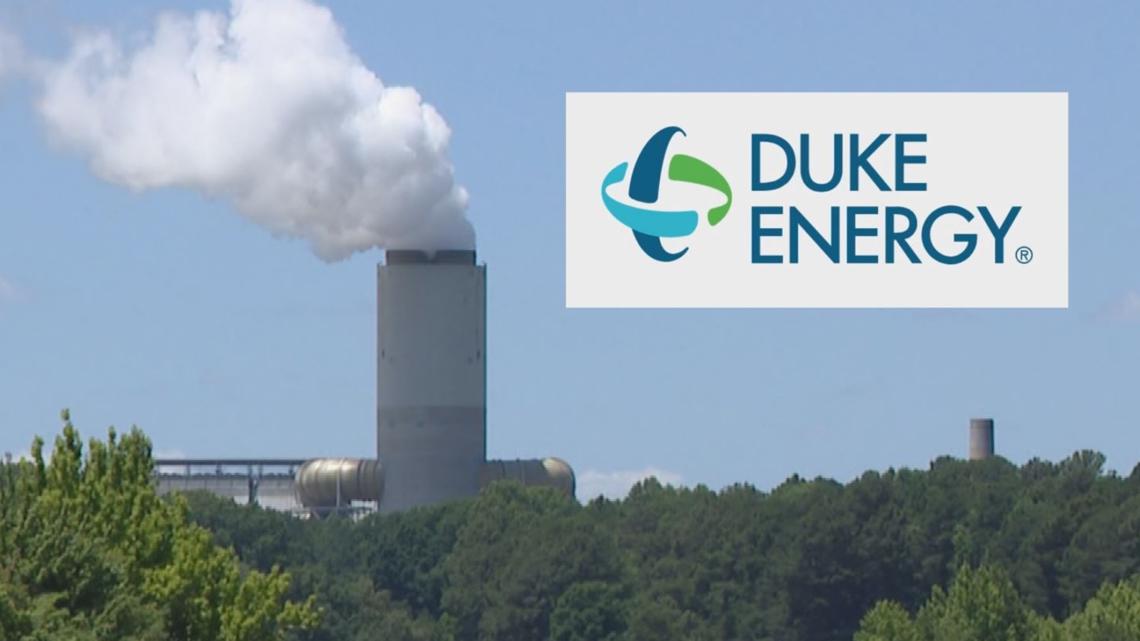
Duke Energy, regulators respond
Now alerted to WCNC Charlotte's results, Duke Energy refuses to answer questions on-camera.
"Duke Energy's sales of ash were conducted in accordance with state regulations in place at the time, which set out how ash could be used in ways that are safe for people and the environment," utility spokesperson Bill Norton said, repeating prior talking points. "Property owners retain full responsibility for maintenance to ensure ongoing compliance with state regulations. Our involvement in this project ended decades ago."
Norton referred questions related to any "concerns about this specific site" to the North Carolina Department of Environmental Quality, which regulates so-called structural fills. DEQ also declined an on-camera interview.
"DEQ has dispatched multiple divisions to the site for review and continues to work with Tutor Time on oversight of remedial updates and compliance with structural fill requirements," spokesperson Katherine Lucas said, referring WCNC Charlotte to the North Carolina Department of Health and Human Services.
The agency has not revealed, at WCNC Charlotte's request, what specific guidance regulators have shared with Tutor Time. In August, DEQ helped with a visual inspection of the day care. Tutor Time said that visit by state regulators found "no risk to children."

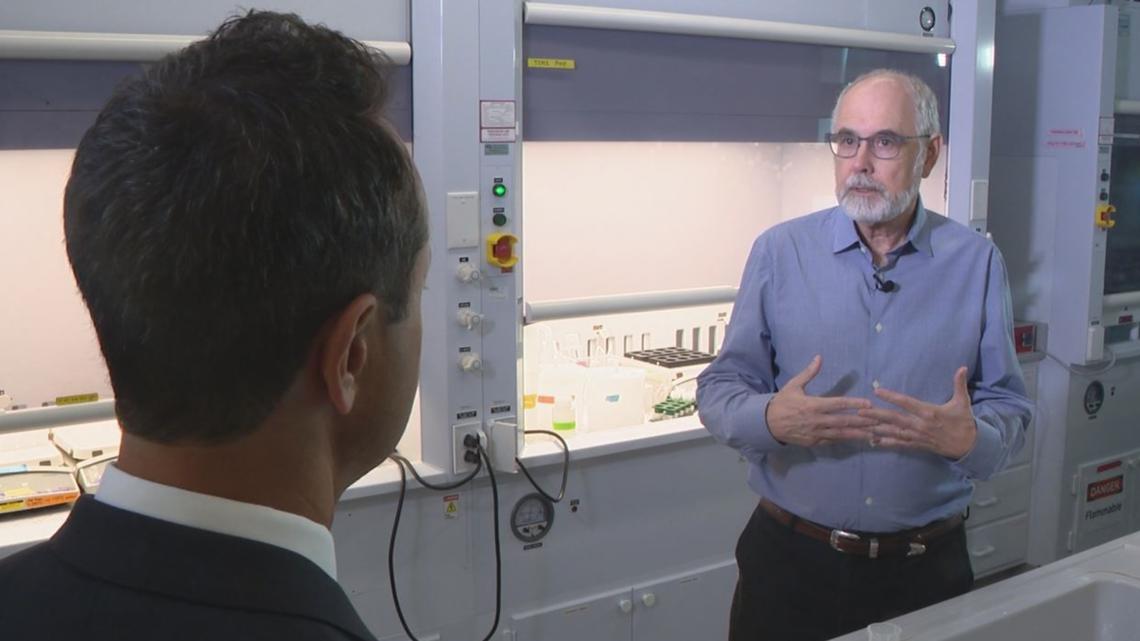
"They need to do more than a visual inspection," Dr. Vengosh said. "The impact is not immediate. It could be a five, seven years gap between exposure to actually the occurrence of the health impact."
NCDHHS also declined WCNC Charlotte's interview request, referring questions about a specific site back to DEQ. However, the health agency warned of coal ash's potential health risks.
"(Coal ash) is made of fine sand (called silica), unburned carbon and various metals such as arsenic, cadmium, chromium, copper, lead, selenium, mercury, nickel and zinc," the agency said in an email. "Many of these substances may be harmful to humans depending on the amount and duration of contact...In the long term, some of the compounds found in coal ash can cause cancer after continued ingestion and inhalation."
Tutor Time pledges action, if necessary
After WCNC Charlotte shared the initial results of the samples collected with Tutor Time's corporate office, the day care sent an alert to parents, assuring them the day care's own experts sampled more than 30 different spots as deep as eight feet beneath the ground on its property. While Tutor Time hasn't revealed what the day care is testing for, Tutor Time said a toxicologist will "carefully" evaluate its results when they are ready. The day care noted the sampling process usually takes between six and eight weeks.

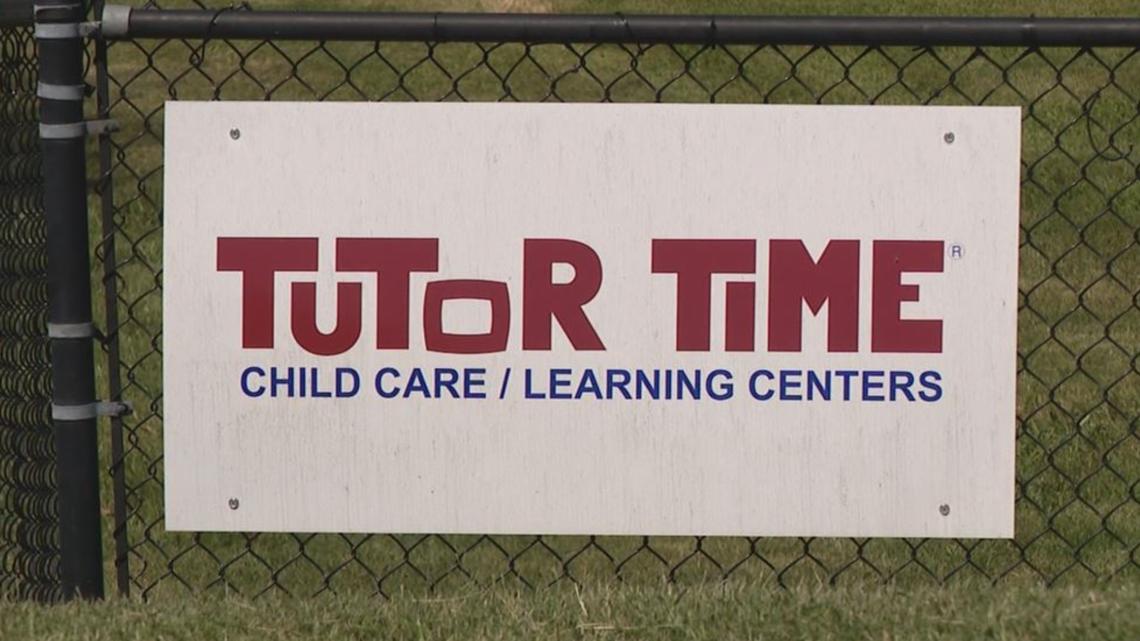
"If the findings show that additional action is necessary, we are ready to explore a range of corrective steps, which includes replacing soil, installing synthetic grass, or even completely rebuilding the playground..." Tutor Time's alert to parents said. "...Despite (regulators') positive review of our site, we pushed forward with our testing efforts out of an abundance of caution. The safety of our children and staff still remains our highest priority and we will share additional status updates as they develop."
Leaked audio from a Tutor Time staff meeting previously showed the director downplaying the potential risk. The day care's corporate office has also declined WCNC Charlotte's on-camera interview requests. Parents have said, before WCNC Charlotte exposed the situation, the day care never disclosed it was built on top of coal ash.
WCNC Charlotte also shared its results with the EPA and Town of Mooresville. Neither has responded.

